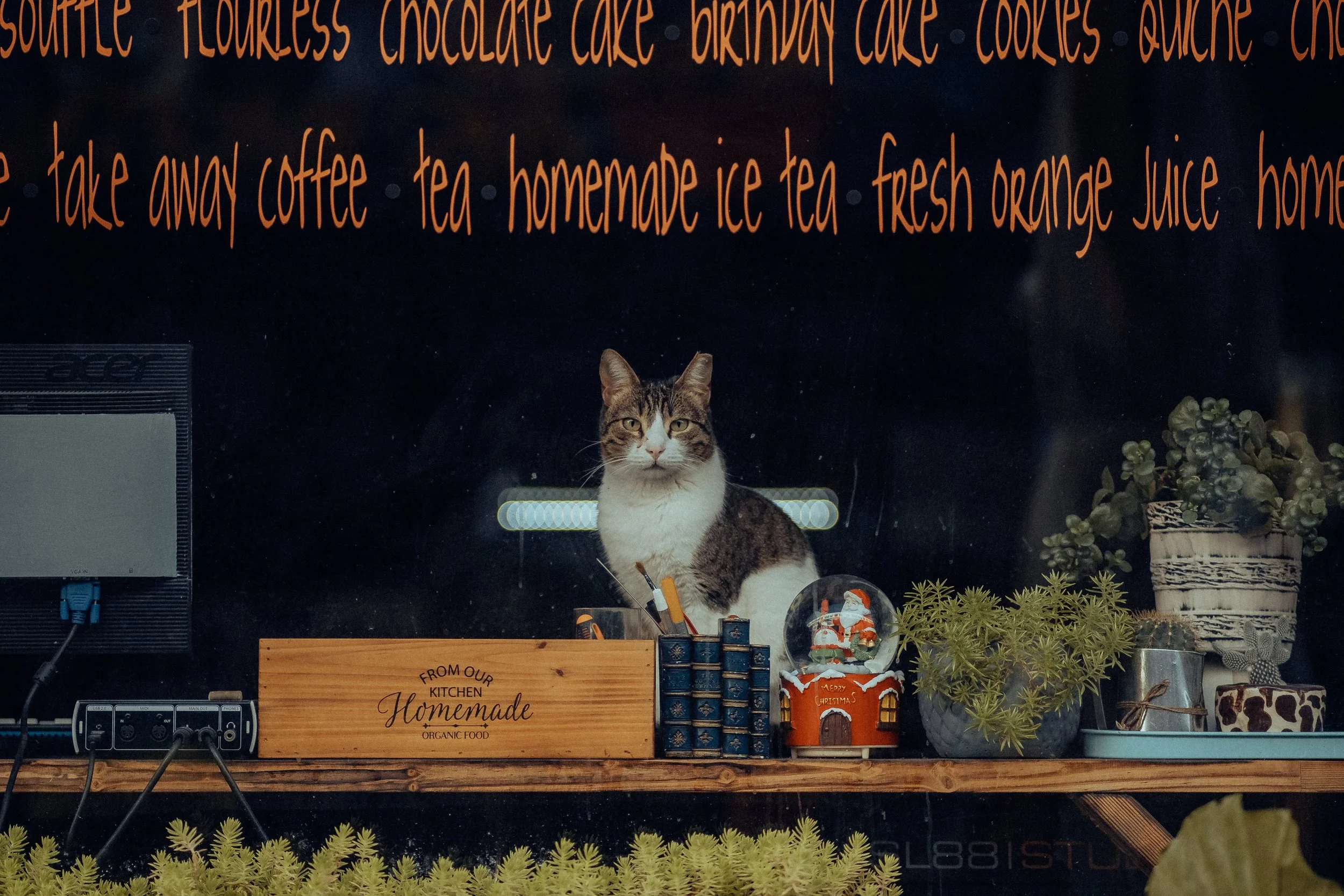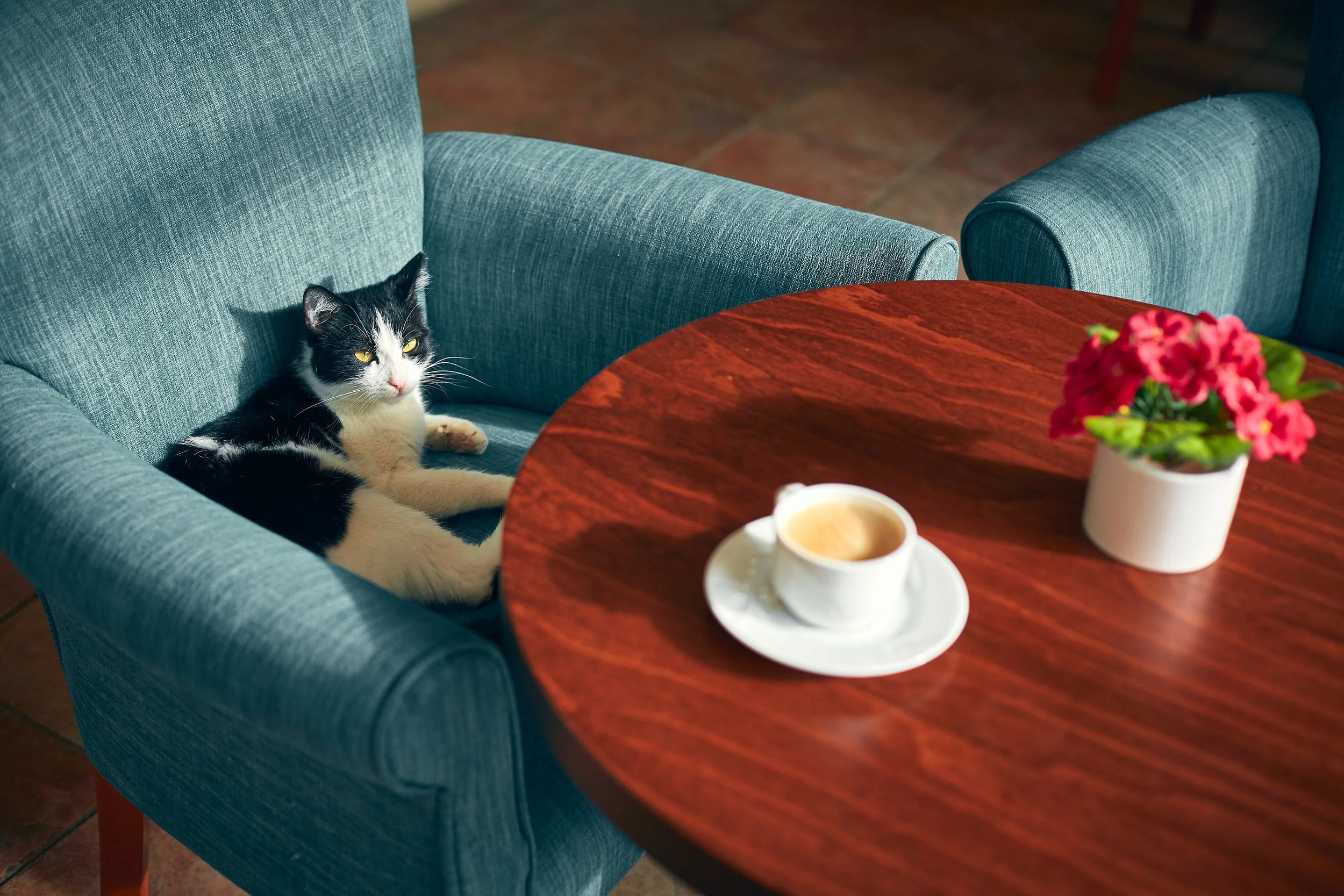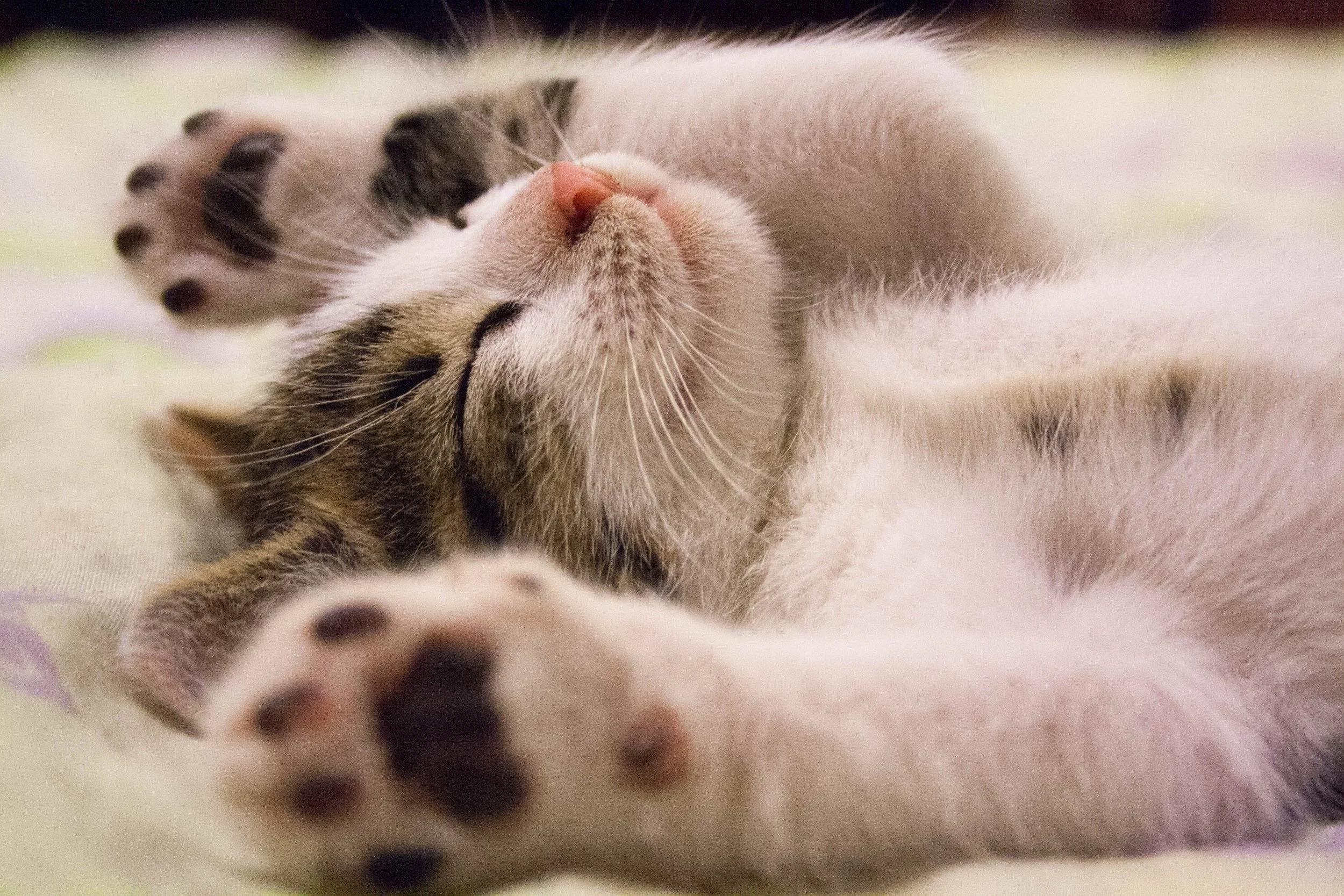While they have a rich history and are fun for humans, cat cafes are a hot topic in animal rights ethics.
Cat in cafe window. Atahan Demir. CC0.
Scooping litter, carpets of cat hair, vet visits and medical bills: taking care of a cat—or any other animal, for that matter—can be both tedious and expensive. But on the other hand, cats are adorable, energetic and entertaining furballs. Previously, there was no in between—if you wanted a cat, it was either all in or nothing. Now there is an in-between solution: cat cafes. Cat cafes serve typical coffee shop beverages and pastries with the added bonus of being able to spend time with a variety of cats and kittens. Often cat cafes charge based on time spent at the cafe, with most cafes having set rates for either 30 minutes or one hour with the cats.
Although cat cafes are currently immensely popular, at one point they weren’t the global phenomenon they are today. The first cat cafe, Cat Flower Garden, was founded in Taipei, Taiwan in 1998. Although there were other cafes to house cats prior to Cat Flower Garden, they were the first cafe to market themselves specifically as being a cat cafe. Now, people from both Taiwan and around the world not only come to play with their fifteen in-house cats, but also to ask for business advice. When Cat Flower Garden first opened its doors, however, business was slow. It took both time and media coverage for people to warm up to the idea of having cats pounce around hot drinks and food.
A cat sitting near a cup of coffee. Bulat Khamitov. CC0.
Tourists brought the idea back to Japan, and in 2004 a cafe in Osaka successfully opened. Multiple cafes opened in Tokyo in 2005 and soon the demand for cat cafes took off. People from around the world traveled to both the original location in Taiwan and the new business ventures in Japan’s metropolises. The cafes opened in Japan were a turning point in this phenomenon’s popularity because cities like Osaka and Tokyo are so densely populated that many people do not have the room or time to be able to take care of cats properly. Thus, people who did not own pets but were still cat lovers could have an opportunity to spend time with their favorite animal.
As business boomed in Asia, many people in the United States also took note of the cafe's popularity. As the first cafe in the United States opened in Oakland, California in 2014, when pet food company Purina ONE sponsored a pop-up cafe in New York City that same year, the public became even more interested in this new, eccentric concept. But, as cat cafes began to pop up throughout the United States and on a global scale—with openings in Melbourne, Australia, Munich, Germany and London, for example—some began to question the ethics of cat cafes.
Lounging Cat. Pixabay. CC0.
One United Kingdom based animal welfare charity, the Royal Society for the Prevention of Cruelty to Animals (RSPCA), made a statement that deemed cat cafes unethical due to the poor, unstable socialization of cats and the occasional unclean cafe. Moreover, many cafes do not properly vaccinate or neuter their cats, leading to diseases running rampant among their tenants. Also, while many cat cafes source their animals from rescues, some rely on breeders, giving no succor to the vast number of shelter cats that are left unadopted and, in turn, are euthanized.
At the same time, many cat cafes source their animals from rescues or shelters, which in turn helps them get adopted by cafe patrons. This is why if you want to reap the benefits of cat cafes—which have reportedly been linked to reducing anxiety in humans—you should know how to identify an ethical versus unethical cafe. An easy call ahead can help determine the status of the cafe. First, you can ask where the cats living in the cafe are sourced from, if they can be adopted, and if they have been both vaccinated and neutered. You can also plan a visit to the cafe before investing money in a session. If the cat cafe is dirty, the cats do not have proper spaces to retreat to if overwhelmed, or if the staff do not have proper knowledge of how to properly care for a cat, then it may be safe to deem the cafe unethical. Whether you intend to enjoy some delicious coffee and quick play time with cats or are considering adoption, here are ten popular cafes:
Carina Cole
Carina Cole is a media studies student with a concentration in creative writing at Vassar College. She is an avid journalist and occasional flash fiction writer. Her passion for writing overlaps with environmentalism, feminism, social justice, and a desire to travel beyond the United States. When she’s not writing, you can find her meticulously curating playlists or picking up a paintbrush.




